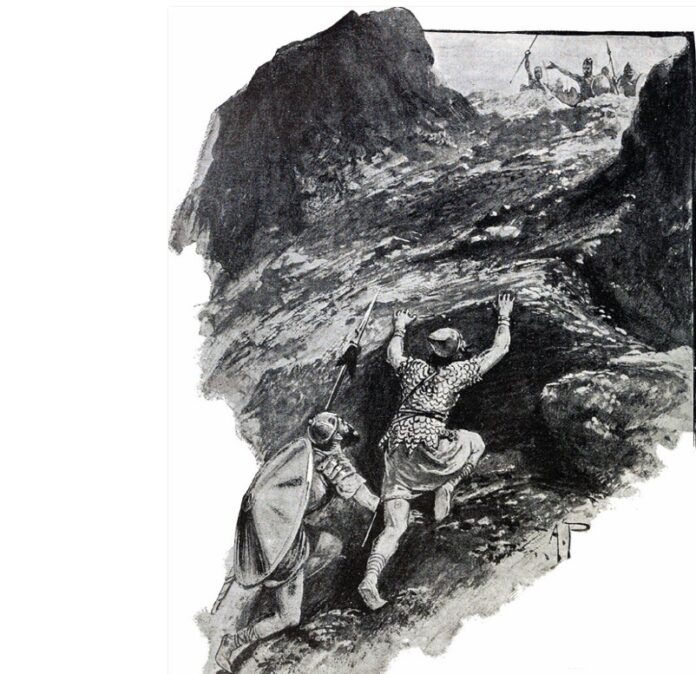In the First World War the British army was fighting the Ottoman Turks in Palestine. A British brigade had received orders to capture a village that stood on a rocky prominence on the other side of a deep valley. The village was called Michmash. The brigade major recognised the name, and that night he searched his Bible by candlelight. He found 1 Samuel 13:16: ‘And Saul and Jonathan his son and the people who were present with them stayed in Geba of Benjamin, but the Philistines encamped in Michmash.’
The account goes on to relate how the Israelite prince Jonathan with his armour-bearer attacked the Philistine encampment. It details the route they took: ‘Within the passes, by which Jonathan sought to go over to the Philistine garrison, there was a rocky crag on the one side and a rocky crag on the other side. The name of one was Bozez, and the name of the other Seneh. The one crag rose on the north in front of Michmash, and the other on the south in front of Geba’ (1 Samuel 14:4–5). The two men climbed the rock, and there ensued a fight: ‘And that first strike, which Jonathan and his armour bearer made, killed about twenty men within as it were half a furrow’s length in an acre of land’ (v. 14).
The brigade major reflected that this narrow passage through the rocks to the flat acre of land should still exist. He woke the commander and they read the passage through together. Patrols were sent out. They found the pass, which was thinly held by the Turks, and which led past two jagged rocks—obviously Bozez and Seneh. Up on top, beside Michmash, they could see by the light of the moon a small flat field.
The brigadier formulated his plan of attack. He sent one company through the pass under cover of darkness. The few Turks whom they met were overpowered without a sound, the cliffs were scaled, and shortly before daybreak the company had taken up a position on the flat field. The Turks awoke, and believing they were being surrounded by the British army they fled in disorder.
Three thousand years after Jonathan’s victory over the Philistines, his tactics were successfully copied due to the accuracy of the Bible record.
Adapted from the reminiscences of Major Vivian Gilbert in ‘The Bible as History’, Werner Keller, Hodder & Stoughton, 1956, ps. 179–180.


